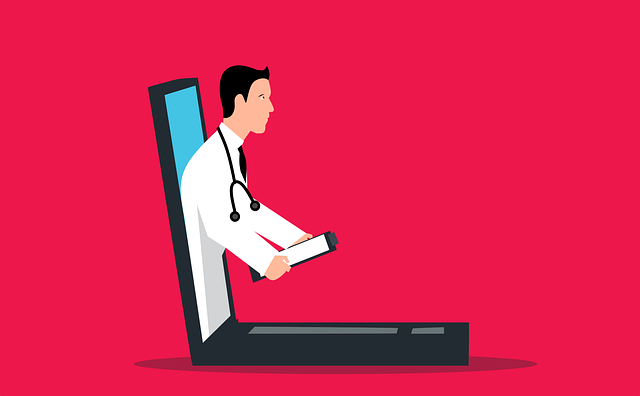businesses should integrate a comprehensive suite of insurance policies including General Liability Insurance, Professional Liability Insurance, and Business Liability Coverage to effectively manage risks. Employer’s Liability Insurance is essential for protecting employees from work-related injuries or illnesses and covering associated compensation and legal fees. This is particularly important as it ensures compliance with workers' compensation laws without compromising a company's financial health. Additionally, businesses must consider Public Liability Insurance and Product Liability Insurance to safeguard against third-party claims arising from public interactions or product use. Small Business Insurance can be customized to encompass these protections for even the smallest enterprises. Professional Liability Insurance is crucial for protecting service providers against allegations of negligence, errors, and omissions. Commercial Liability Insurance provides broad coverage for various liabilities including property damage and bodily injury claims. It's important for businesses to understand the nuances between these insurance types—such as the differences between Employer’s Liability Insurance and Commercial Liability Insurance—to ensure they have the appropriate level of protection against financial risks and unforeseen events. Small business owners should consult with insurance professionals to tailor their coverage, ensuring they are adequately protected under both Employer's Liability and Commercial Liability Insurance frameworks.
Employer’s Liability Insurance stands as a critical safeguard for businesses with staff, mandated by law to provide financial protection against work-related injuries or illnesses. This pivotal coverage is indispensable in mitigating the risks associated with running a business and ensuring compliance with statutory requirements. As we delve into the complexities of liability insurance, distinguishing between General Liability Insurance, Professional Liability Insurance, and Business Liability Coverage, it becomes clear that understanding these policies is integral for small businesses facing product and public liability risks. In this article, we explore the nuances of Employer’s Liability Insurance in contrast to Commercial Liability Insurance, highlighting why every business owner should prioritize this aspect of their risk management strategy alongside other key insurance types like Public Liability Insurance and Small Business Insurance.
- Navigating Mandatory Employer’s Liability Insurance: Protecting Your Workforce and Business Finances
- Understanding the Scope of Employer’s Liability Insurance in Relation to General, Professional, and Business Liability Coverages
- The Importance of Employer’s Liability Insurance for Small Businesses Amidst Product and Public Liability Risks
- Employer’s Liability vs. Commercial Liability: What Every Business Owner Needs to Know
Navigating Mandatory Employer’s Liability Insurance: Protecting Your Workforce and Business Finances
Incorporating General Liability Insurance, Professional Liability Insurance, and Business Liability Coverage into a comprehensive risk management strategy is crucial for businesses with employees to navigate the mandates of Employer’s Liability Insurance. This critical insurance not only protects the health and safety of your workforce by providing coverage for work-related injuries or illnesses but also fortifies your business’s financial security against the cost of compensation and legal fees that may arise from such claims. Unlike General Liability Insurance, which typically covers third-party claims, Employer’s Liability Insurance is specifically designed to address the unique risks associated with employing staff. It ensures that employers can fulfill their obligations under workers’ compensation laws without jeopardizing the financial stability of their operations.
Furthermore, businesses must consider Public Liability Insurance and Product Liability Insurance as they operate in a public domain or produce goods that may be subject to claims related to harm caused to third parties. Small Business Insurance can be tailored to include these aspects, ensuring that even the smallest of enterprises is protected. For those in specialized fields where professional expertise is central to their operations, Professional Liability Insurance offers coverage against claims of negligence or harmful errors and omissions. Commercial Liability Insurance extends its umbrella to safeguard businesses from a wide range of liabilities, encompassing both property and bodily injury claims. By understanding the nuances between these types of Business Liability Coverage, companies can select the appropriate policies that align with their industry-specific risks and legal requirements, thereby safeguarding both their employees and their financial wellbeing.
Understanding the Scope of Employer’s Liability Insurance in Relation to General, Professional, and Business Liability Coverages
Employer’s Liability Insurance is a specialized form of coverage that addresses the unique exposures businesses face when employing staff. It is distinct from General Liability Insurance, which covers third-party claims for bodily injury or property damage arising from the company’s operations. While Employer’s Liability Insurance is focused on the welfare of employees, it complements other liability coverages such as Professional Liability Insurance, also known as Errors and Omissions (E&O) insurance, which protects against claims related to professional advice or services provided by a business that result in a financial loss. Similarly, Product Liability Insurance is specific to the manufacturing, distribution, or sale of defective products, offering protection against claims for harm caused by these products.
Small Business Insurance packages often include a combination of these liability coverages, including Employer’s Liability Insurance, to provide comprehensive protection. This ensures that small businesses are not only covering their legal obligations towards employees but also safeguarding against claims from clients or third parties affected by the business’s operations or products. Business Liability Coverage and Public Liability Insurance further expand this protection by addressing broader liability risks, including those arising from customer slips and falls on business premises to claims of libel or defamation. Commercial Liability Insurance, encompassing a broad range of potential liabilities, is crucial for businesses that interact with the public or other companies. Understanding the nuances between these coverages is essential for businesses to ensure they have the appropriate protection in place, thereby mitigating financial risks and safeguarding their operations against unforeseen events.
The Importance of Employer’s Liability Insurance for Small Businesses Amidst Product and Public Liability Risks
For small businesses, navigating the complexities of liability risks is a critical aspect of operations. General Liability Insurance serves as a safeguard against third-party claims arising from bodily injury, property damage, and personal and advertising injury. This type of coverage, often included under Business Liability Coverage, is essential for protecting against unforeseen events that could otherwise jeopardize the company’s financial health. Moreover, Professional Liability Insurance, tailored for businesses offering professional advice or services, offers protection against claims alleging negligence or errors in judgment.
In addition to General Liability Insurance, Public Liability Insurance is pivotal for small businesses that interact with the public or have their products used by others. It shields against claims related to accidents involving customers or damage caused by a company’s product. Product Liability Insurance, a subset of Commercial Liability Insurance, specifically addresses potential liabilities arising from products sold or manufactured by the business. This comprehensive coverage ensures that small businesses are not overwhelmed by the costs associated with legal defense and compensation claims, which can be particularly burdensome without this protection. By integrating both Product Liability Insurance and Public Liability Insurance into their Small Business Insurance portfolio, companies can confidently operate knowing they have a robust line of defense against a wide array of liability risks.
Employer’s Liability vs. Commercial Liability: What Every Business Owner Needs to Know
When delineating between Employer’s Liability Insurance and Commercial Liability Insurance, it is crucial for business owners to understand the distinct roles each plays in safeguarding their operations. Employer’s Liability Insurance specifically addresses the risks associated with employing staff. It provides coverage for claims arising from work-related injuries or illnesses sustained by employees, ensuring that medical costs and legal expenses are managed effectively. This specialized coverage is mandated for businesses with workers and is a cornerstone of a robust employment practices risk management strategy.
In contrast, Commercial Liability Insurance encompasses a broader spectrum of risks that a business may encounter. It includes General Liability Insurance, which protects against third-party claims for bodily injury, property damage, and personal and advertising injuries. Additionally, Professional Liability Insurance (Errors & Omissions) covers claims related to professional services provided by the business, whereas Product Liability Insurance addresses the risks associated with products manufactured, sold, or promoted by the company. Small Business Insurance packages often bundle these coverages to provide comprehensive protection against a variety of liability exposures. Businesses must also consider Public Liability Insurance, which offers protection when the business interacts with the public, and Product Liability Insurance, which specifically addresses potential claims arising from defective products or their use. Understanding the nuances between Employer’s Liability and Commercial Liability Insurance ensures that small businesses can select appropriate coverage tailored to their specific needs, thereby mitigating financial risks and safeguarding their long-term success. Business owners should consult with insurance professionals to navigate the intricacies of these coverages and ensure their business is adequately protected against a wide array of liability exposures.
In conclusion, the necessity of Employer’s Liability Insurance for businesses with employees cannot be overstated. As outlined in this article, it is a critical safeguard against the financial repercussions of work-related injuries or illnesses. This coverage extends beyond mere compliance, serving as a cornerstone within a comprehensive risk management strategy alongside General Liability, Professional Liability Insurance, and Business Liability Coverage. For small businesses in particular, the integration of Public Liability and Product Liability Insurance into their insurance portfolio, alongside Employer’s Liability, ensures a robust defense against a wide array of liability risks. Recognizing the distinctions between Employer’s and Commercial Liability Insurance is essential for business owners to ensure adequate protection. Ignoring this mandatory requirement could leave businesses vulnerable to crippling financial burdens. Thus, it is imperative that every employer understands and secures the appropriate Small Business Insurance to maintain both their employees’ well-being and the financial health of their enterprise.



